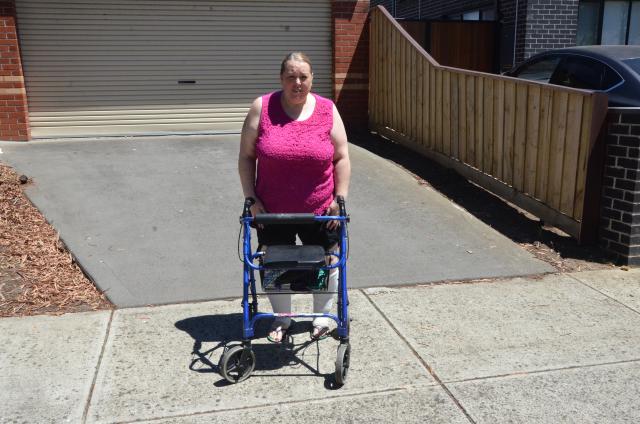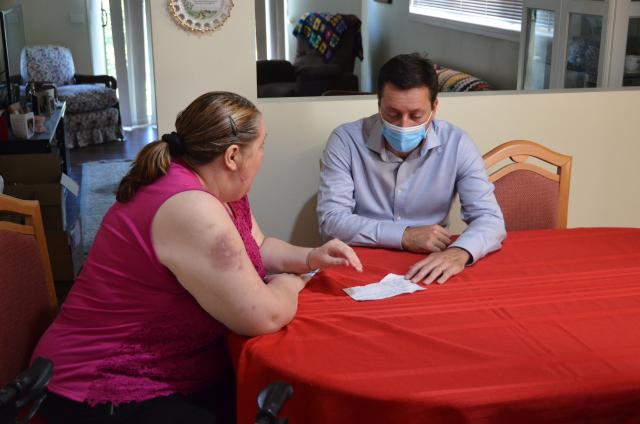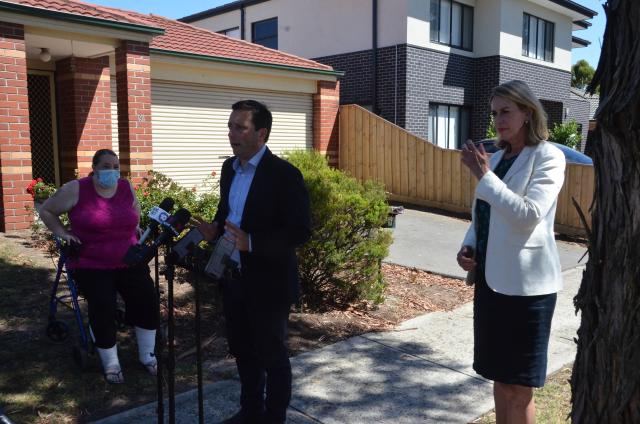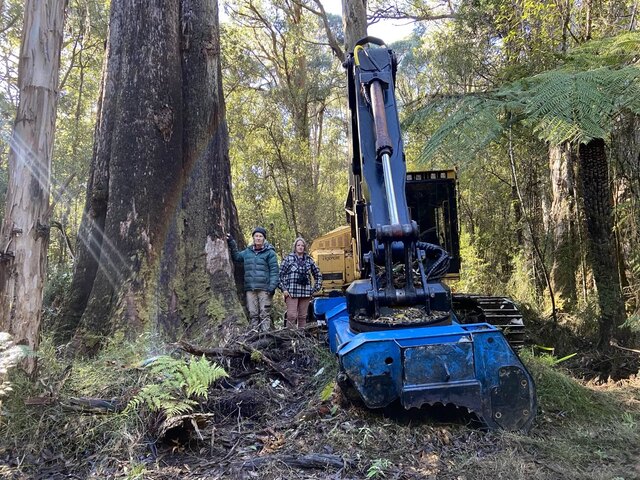South east resident Noelene Nolan sustained significant injuries as the victim of two terrifying home invasions in Hampton Park in 2017.
Since 2019 she has been waiting for facial surgery to treat the wound on the right side of her face, where her patorid gland slashed during the home invasion, which has caused the onset of Freys Syndrome, a condition where saliva leaks from the wound on her face onto her cheek when she eats or drinks.
The delay in receiving treatment for Freys has meant that she cannot receive treatment for respiratory issues, sleep apnoea or further surgery for vocal chord dysfunction.
“It started off as a category three, it is (now) category two semi-emergency and soon moving to category one, because I risk permanent disfigurement,” Ms Nolan said.
“I have severe diabetes, I have severe lymphedema, I have the vocal chord disfunction, and through constant long-term use, because I can’t get into a respiratory clinic, they’ve put me on prednisolone, which is a high-strength steroid which is now starting to cause the early onset of glaucoma, which means I will eventually lose my vision.”
The beating sustained by Ms Nolan during the home invasion resulting in “numerous back fractures” and significant damage to both knees, so much so that she requires a walking frame and limits time spent standing to 10-minute intervals to avoid experiencing substantial pain.
Now Noelene Nolan is calling for the Victorian Government to restart elective surgeries after they were temporarily suspended on Thursday 6 January.
Ms Nolan has criticised the decision to recommence in vitro fertilisation (IVF) procedures in Victoria, announced on Sunday 23 January, citing double standards.
“How do we justify starting IVF treatment, and putting that above people who have serious medical conditions, which can be critical, and people are dying left right and centre?
“My biggest fear is that I’m scared I’m going to fall through the cracks, because all my other health conditions until my surgery, are being neglected.”
Speaking from Ms Nolan’s Cranbourne home on Tuesday, State Opposition leader Matthew Guy said that Victorians were experiencing a “health crisis”.
“People are suffering in this state because elective surgery has been stopped,” Mr Guy said. “It is no longer tenable for the government to just say ‘we’ll get around to it’.
“You can’t just do this to people. You can’t treat people like this.
“The government’s got to stop treating people like pawns in a political game with Covid-19.
“Restart elective surgery and do it straight away.”
Victorian Shadow Health Minister Georgie Crozier, also in attendance on Tuesday, warned of potential long-term consequences of the ban.
“Category two and three (surgeries), some of those conditions will become more debilitating, put more pressure on people’s health conditions and they will become life-threatening,” Ms Crozier said.
“There will be people that sadly succumb because they haven’t been seen to in a timely manner.”
Data from the Australian Institute of Health and Welfare (AIHW) released on Tuesday 25 January shows the number of patients being treated from Australia’s public hospital elective surgery waiting lists increased during 2020–21 as the hospitals worked to clear a backlog left by Covid-19-initiated suspensions the previous year.
Non-elective surgeries were temporarily suspended nationally in March 2020, reducing the number of elective surgeries performed in 2019-20 and contributed to creating a “backlog” of surgeries that had been delayed, according to AIHW spokesperson Dr. Adrian Webster.
“‘Nationally, there were 754,600 admissions to hospital from the public elective surgery waiting lists in 2020–21, up from 688,000 admissions in 2019–20 but slightly lower than the 758,000 admissions in 2018–19,” Dr Webster said.
There were 893,000 patients added to elective surgery waiting lists in 2020–21, up from 838,000 the previous year, and similar to the number added in 2018–19.
The AIHW defines elective surgery as “planned surgery that can be booked in advance as a result of a specialist clinical assessment.”









